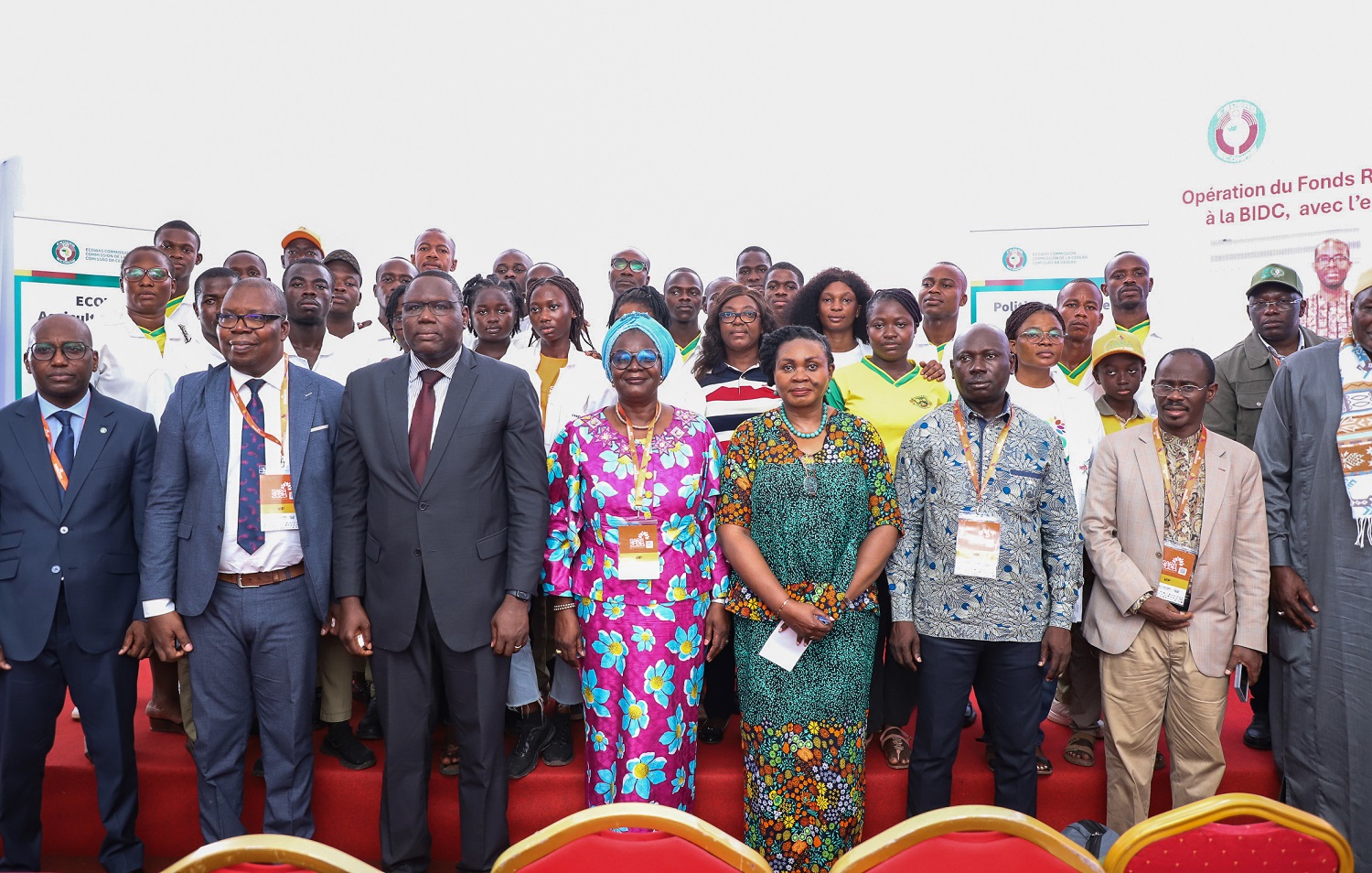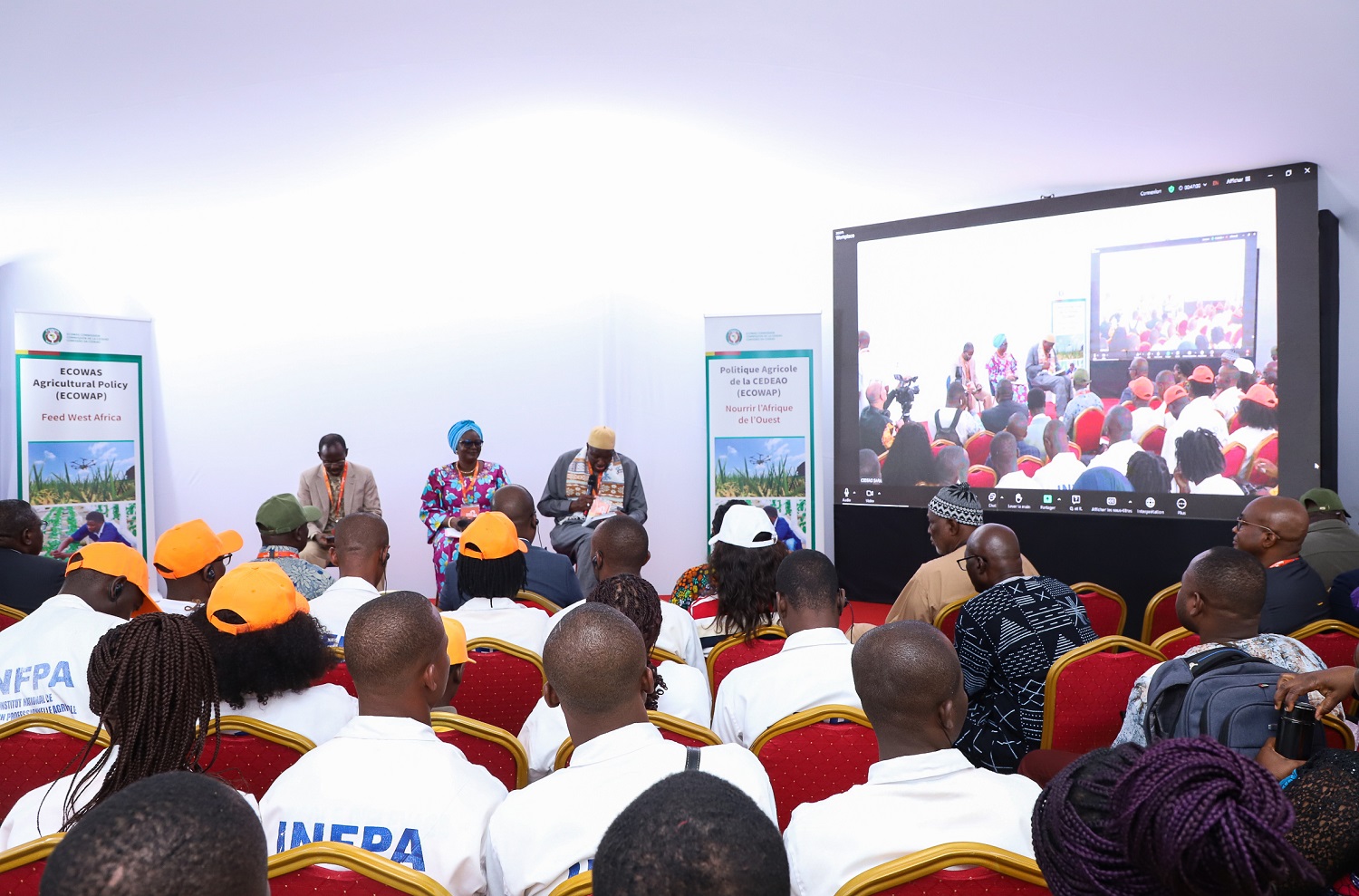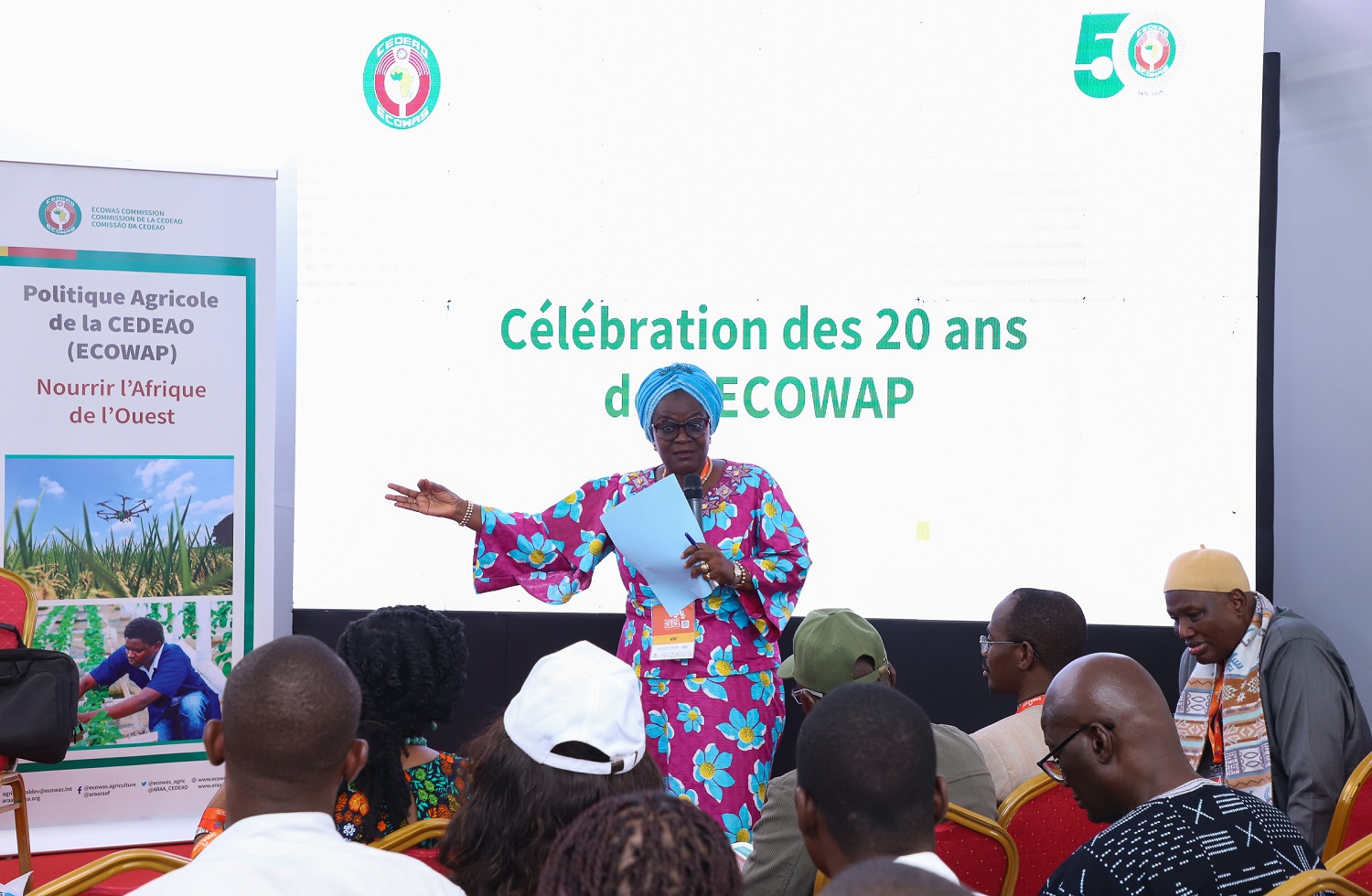20 Years of Implementing the Regional Agricultural Policy (ECOWAP) – Key Lessons and Wayford
26 May, 2025This was the subject of fruitful discussions at the first side-event of ECOWAS’s participation in the Abidjan International Agriculture and Animal Resources Exhibition Fair (SARA 2025) on 24 May 2025. ECOWAP has introduced participatory governance, strategic investments and harmonized policies to boost food sovereignty and rural development, while ensuring regional coordination and coherence of agricultural transformation strategies.
Over the last two decades, ECOWAS implemented ECOWAP through regional investment plans (RAIP), national investment plans (NAIP), and multi-stakeholder platforms. Flagship actions include the establishment of the Regional Food Security Reserve, the ECOWAS Rice Offensive, promoted employment support to agroecology and climate-smart agriculture, harmonization of seed and pesticide regulations, and creation of specialized centers for innovation and training. Institutional structures such as the Regional Agency for Agriculture and Food (RAAF), and important platforms such as ECOWAP M&E platform (ECOWAP MEALS) and MESECOPS, and technical monitoring committees were operationalized to support evidence-based decisions. Partnerships were deepened with CORAF, CILSS, UEMOA and the private sector.
The Regional Fund for Agriculture and Food (ECOWADF) was set up as a financial mechanism, while e-learning and digital tools enhanced stakeholder capacity. Strategic frameworks and processes such as the Cadre Harmonisé (CH) and Biennial Reviews supported evidence-based decision-making and accountability across the region.
Despite notable progress, ECOWAP’s implementation faces major hurdles: over-reliance on external donors, limited internal budget for productivity transformation, weak integration of monitoring systems and existing platforms within the region, and slow adoption of legal frameworks (e.g. Cadre Harmonisé). Youth and private sector engagement remain underexploited.
Going forward, ECOWAS must accelerate internal financing (e.g. ECOWADF), enhance coordination, and prioritize high-impact investment in value chains and resilience. Stronger political will, inclusive governance, and adoption of harmonized instruments will be vital to realizing the ECOWAP+35 vision align to Kampala Declaration at continental level for a sustainable and self-reliant agricultural future.



















